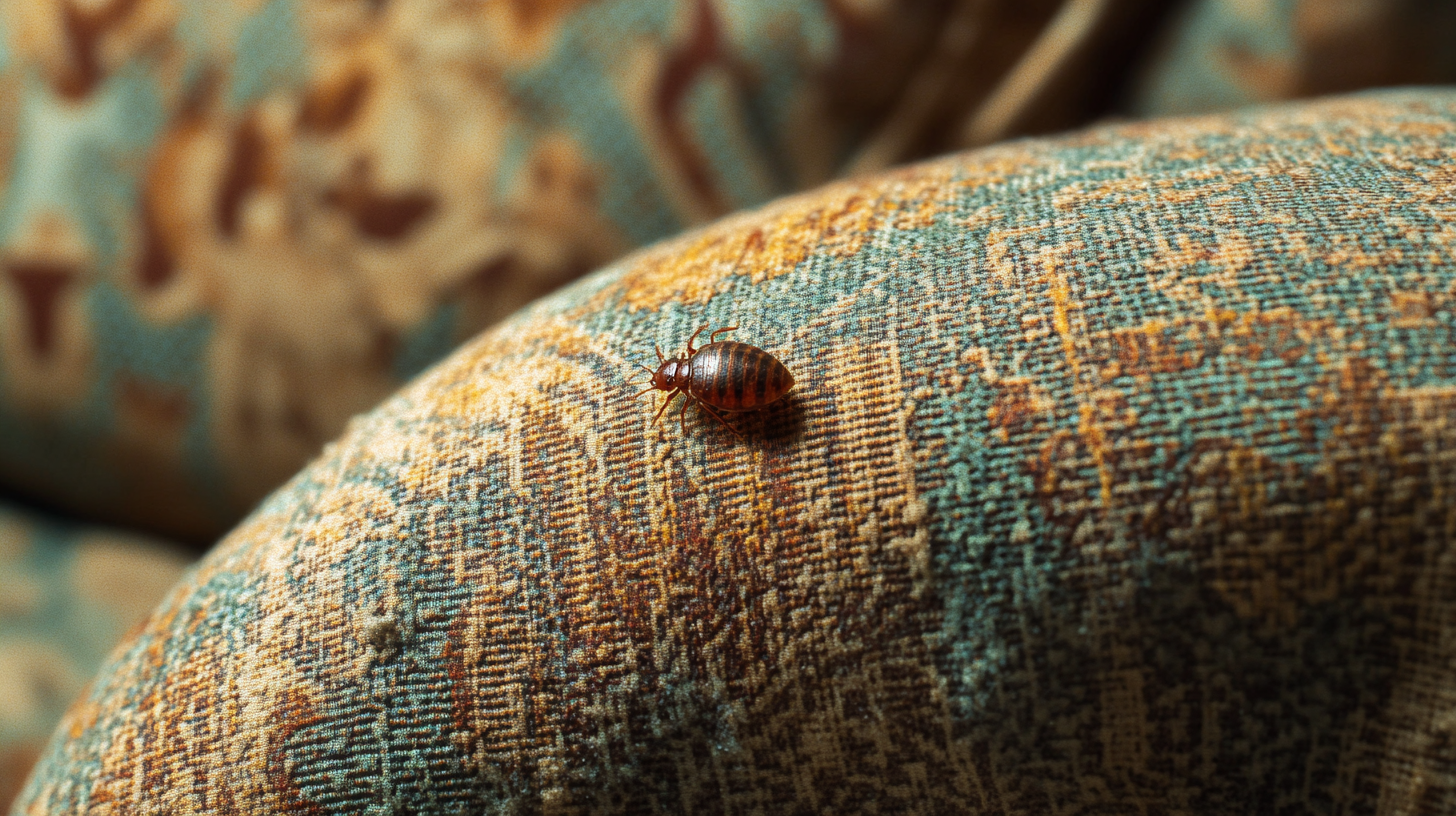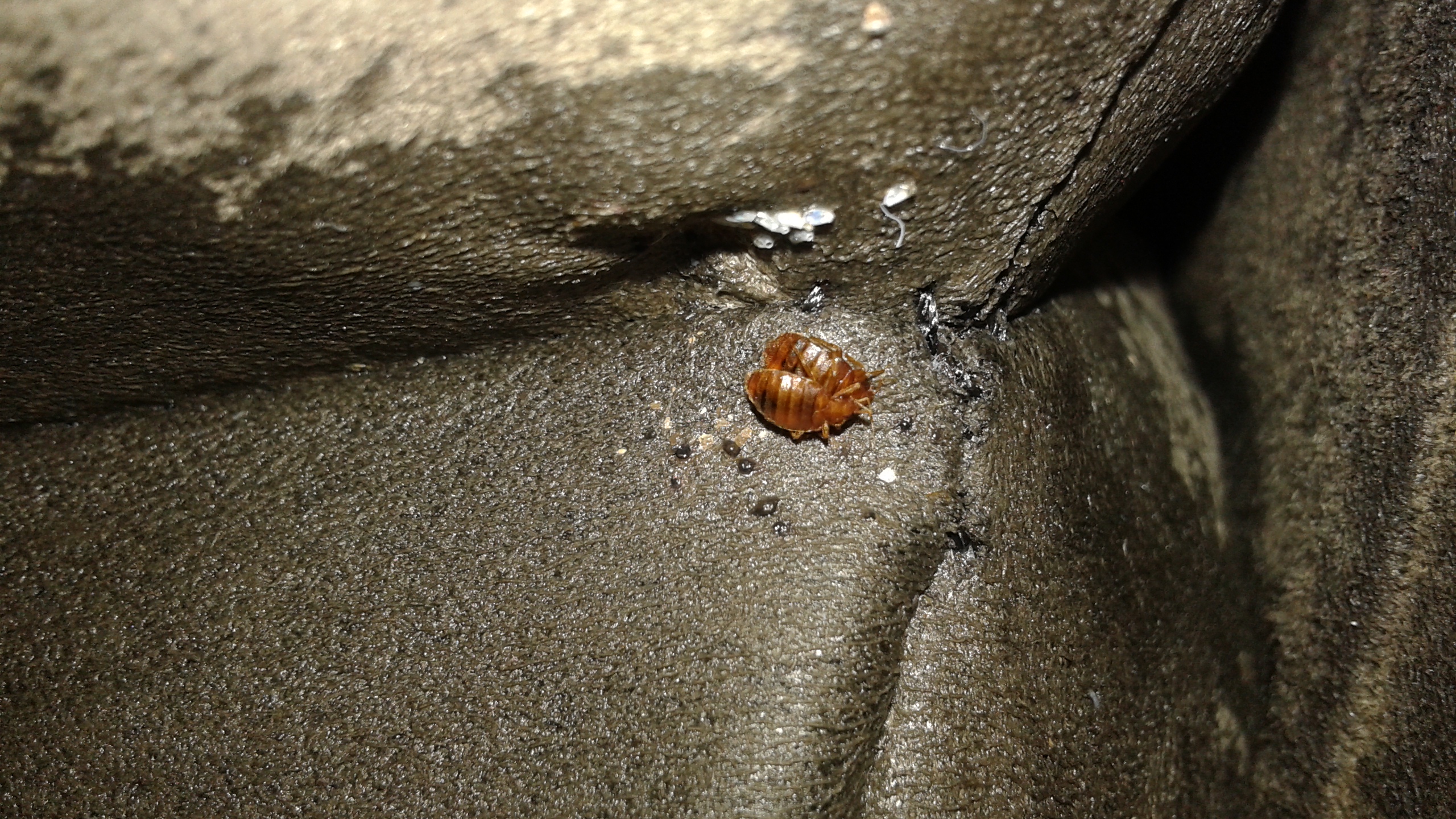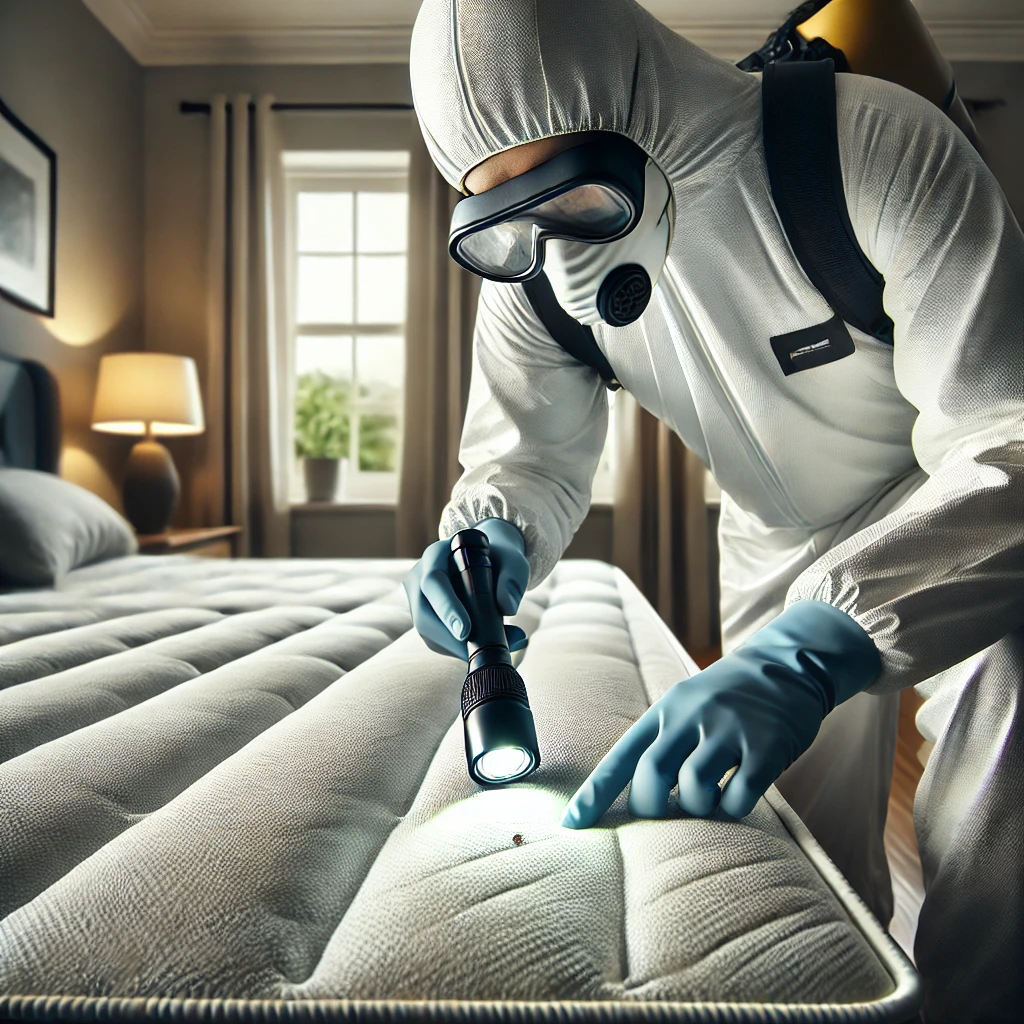Bed bugs are persistent pests known for infesting homes, hotels, and other environments. While chemical treatments are a common method for dealing with infestations, many people prefer natural ways to eliminate these pests.
In this article, we will take a look at how bed bugs die naturally and provide tips for preventing infestations without chemicals.



 Visit our Species, Control, and DIY Guide sections for additional resources on bed bugs and ways to tackle a bed bug infestation.
Visit our Species, Control, and DIY Guide sections for additional resources on bed bugs and ways to tackle a bed bug infestation.
 Essential Oils as Natural Repellents
Certain essential oils, like lavender, peppermint, and tea tree oil, repel bed bugs with their strong scents. Mix a few drops with water and apply to bed frames, mattresses, and furniture seams. While these oils can deter bed bugs, they are less effective against established infestations.
Diatomaceous Earth (DE)
Diatomaceous earth, a natural powder, dehydrates bed bugs on contact. Sprinkle DE around bed frames, under furniture, and along baseboards. Let it sit for a few days before vacuuming. DE do not cause any harm to humans and pets and is an effective chemical-free control method.
Heat Treatment
Heat can naturally eliminate bed bugs and their eggs without chemicals. A steam cleaner can come in handy to treat mattresses, furniture, fabrics, and carpets. Steam penetrates deep into cracks and crevices, ensuring thorough elimination.
Prevent Entry with Physical Barriers
Prevent bed bugs from entering your home by blocking cracks and gaps in walls, windows, and doors with caulk. Other than that, use protective mattress and box spring encasements to block potential hiding spots for bed bugs.
If the bed bug infestation has already taken your home, preventive measures might be futile to stop it. Consult a pest control professional to handle the situation. Our team can provide a customized approach to protect your home effectively.
Essential Oils as Natural Repellents
Certain essential oils, like lavender, peppermint, and tea tree oil, repel bed bugs with their strong scents. Mix a few drops with water and apply to bed frames, mattresses, and furniture seams. While these oils can deter bed bugs, they are less effective against established infestations.
Diatomaceous Earth (DE)
Diatomaceous earth, a natural powder, dehydrates bed bugs on contact. Sprinkle DE around bed frames, under furniture, and along baseboards. Let it sit for a few days before vacuuming. DE do not cause any harm to humans and pets and is an effective chemical-free control method.
Heat Treatment
Heat can naturally eliminate bed bugs and their eggs without chemicals. A steam cleaner can come in handy to treat mattresses, furniture, fabrics, and carpets. Steam penetrates deep into cracks and crevices, ensuring thorough elimination.
Prevent Entry with Physical Barriers
Prevent bed bugs from entering your home by blocking cracks and gaps in walls, windows, and doors with caulk. Other than that, use protective mattress and box spring encasements to block potential hiding spots for bed bugs.
If the bed bug infestation has already taken your home, preventive measures might be futile to stop it. Consult a pest control professional to handle the situation. Our team can provide a customized approach to protect your home effectively.

How Do Bed Bugs Die Naturally?
Bed bugs are incredibly resilient pests, capable of surviving harsh conditions and extended periods without feeding. However, certain natural factors, such as starvation, extreme temperatures, and dehydration, can lead to their demise over time. Starvation Bed bugs rely solely on human blood for nourishment. Adult bed bugs can survive for 2 to 3 months without feeding, while nymphs, which require more frequent meals for growth, die more quickly without food. Over time, the lack of sustenance depletes their energy reserves, leading to death. Exposure to Extreme Temperatures Bed bugs are highly sensitive to temperature extremes. High heat above 120°F (49°C) can kill them, making treatments like hot water washing or steaming effective. Similarly, prolonged exposure to freezing temperatures of 32°F (0°C) or below can eliminate bed bugs, with infested items safely treated in a freezer. Dehydration In addition to blood meals, bed bugs require moisture to survive. Extended periods without access to a host can result in dehydration, gradually weakening and eventually killing them. This process is particularly effective when combined with other control measures.

Not getting a solution?
Get your free pest control estimate today!At What Temperature Do Bed Bugs Die?
Bed bugs struggle to survive in extreme temperatures, making heat and cold effective natural methods for eliminating them. Temperatures above 113°F (45°C) for extended periods or 118°F (48°C) for 90 minutes can kill bed bugs quickly, which is why heat treatments, such as laundering or professional services, are commonly used. Conversely, freezing temperatures below 0°F (-18°C) can also kill bed bugs, but the cold must be sustained for at least four days to be effective. Both methods are natural and chemical-free ways to combat infestations.How to Prevent Bed Bugs Naturally?
Preventing bed bugs naturally is an effective and eco-friendly approach to keeping your home safe from infestations. By incorporating regular maintenance, natural repellents, and preventative measures, you can minimize the chances of bed bugs establishing themselves in your space. Regular Cleaning and Vacuuming Frequent cleaning and vacuuming can disrupt bed bug activity and remove eggs before they hatch. Focus on mattresses, couches, cracks in walls, and furniture crevices. Use a vacuum with a hose attachment for tight spaces, and dispose of vacuum contents immediately to prevent re-infestation. Essential Oils as Natural Repellents
Certain essential oils, like lavender, peppermint, and tea tree oil, repel bed bugs with their strong scents. Mix a few drops with water and apply to bed frames, mattresses, and furniture seams. While these oils can deter bed bugs, they are less effective against established infestations.
Diatomaceous Earth (DE)
Diatomaceous earth, a natural powder, dehydrates bed bugs on contact. Sprinkle DE around bed frames, under furniture, and along baseboards. Let it sit for a few days before vacuuming. DE do not cause any harm to humans and pets and is an effective chemical-free control method.
Heat Treatment
Heat can naturally eliminate bed bugs and their eggs without chemicals. A steam cleaner can come in handy to treat mattresses, furniture, fabrics, and carpets. Steam penetrates deep into cracks and crevices, ensuring thorough elimination.
Prevent Entry with Physical Barriers
Prevent bed bugs from entering your home by blocking cracks and gaps in walls, windows, and doors with caulk. Other than that, use protective mattress and box spring encasements to block potential hiding spots for bed bugs.
If the bed bug infestation has already taken your home, preventive measures might be futile to stop it. Consult a pest control professional to handle the situation. Our team can provide a customized approach to protect your home effectively.
Essential Oils as Natural Repellents
Certain essential oils, like lavender, peppermint, and tea tree oil, repel bed bugs with their strong scents. Mix a few drops with water and apply to bed frames, mattresses, and furniture seams. While these oils can deter bed bugs, they are less effective against established infestations.
Diatomaceous Earth (DE)
Diatomaceous earth, a natural powder, dehydrates bed bugs on contact. Sprinkle DE around bed frames, under furniture, and along baseboards. Let it sit for a few days before vacuuming. DE do not cause any harm to humans and pets and is an effective chemical-free control method.
Heat Treatment
Heat can naturally eliminate bed bugs and their eggs without chemicals. A steam cleaner can come in handy to treat mattresses, furniture, fabrics, and carpets. Steam penetrates deep into cracks and crevices, ensuring thorough elimination.
Prevent Entry with Physical Barriers
Prevent bed bugs from entering your home by blocking cracks and gaps in walls, windows, and doors with caulk. Other than that, use protective mattress and box spring encasements to block potential hiding spots for bed bugs.
If the bed bug infestation has already taken your home, preventive measures might be futile to stop it. Consult a pest control professional to handle the situation. Our team can provide a customized approach to protect your home effectively.





